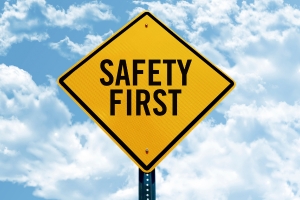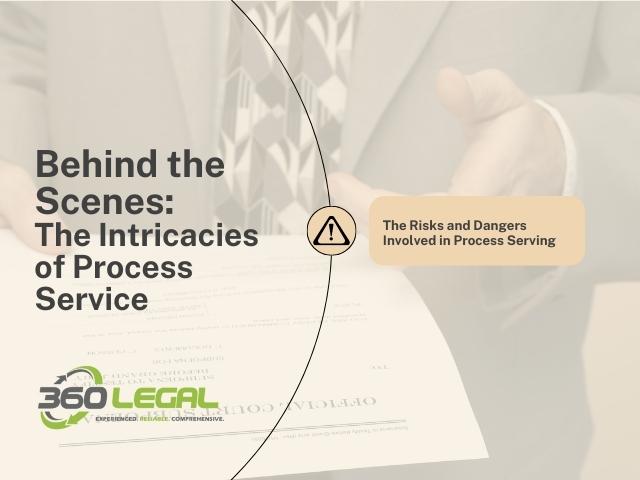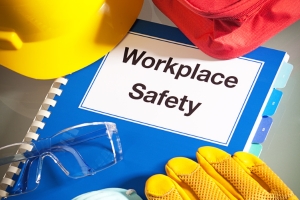Process serving plays a crucial role in the justice system, ensuring that parties involved in a legal dispute are aware of proceedings and allowed to respond. However, the role of a process server often comes with its fair share of risks and dangers. At 360 Legal, we approach these challenges with a mix of preparedness, professionalism, and an unwavering commitment to the safety of our team. In this article, we delve into the potential hazards in the field of process service and the measures we take to mitigate them.
Understanding the Risks in Process Serving
Process servers may encounter situations that can escalate into risky or even dangerous scenarios in their duties. Here are some of the primary risks associated with the profession:
Personal Safety Risks
When delivering legal documents, process servers may encounter individuals who react negatively or aggressively to being served. This can lead to confrontational situations that may put the server’s personal safety at risk.
Legal Risks
Process servers must adhere to a strict set of laws and regulations. Any deviation from these rules, whether intentional or not, can result in legal repercussions.
Health Risks
Process servers often work in various environments, some of which may pose health risks. These can range from exposure to inclement weather to potential contact with infectious diseases.
How 360 Legal Manages Risks in Process Service
At 360 Legal, we’re committed to ensuring the safety and well-being of our team. Here’s how we manage the inherent risks in process service:
Safety Training and Protocols
Our process servers undergo comprehensive safety training that prepares them to handle potential threats and avoid dangerous situations. We also have robust protocols to ensure our team can carry out their duties safely and efficiently.
Strict Adherence to Legal Guidelines
We place a strong emphasis on understanding and complying with legal guidelines. This includes everything from respecting privacy laws to following proper procedures for serving legal documents.
Use of Technology
We leverage technology, including our proprietary software, 360 Theia, to aid in process service. This tool helps us locate individuals accurately, reducing the time spent in potentially unsafe environments.
For Example:
Let’s consider a fictional scenario where one of our process servers, John, is assigned to serve a restraining order. Upon reaching the address, John identifies himself and attempts to serve the documents. However, the recipient becomes aggressive and refuses to accept the documents. Remembering his training, John steps back, maintains a safe distance, and calmly reiterates the importance of accepting the documents. He uses his body-worn camera, part of 360 Legal’s safety equipment, to record the interaction, ensuring a record of his attempt to serve.
Frequently Asked Questions
1. What should a process server do if they feel threatened?
– At 360 Legal, we advise our servers to prioritize their safety. They are trained to leave the situation immediately and report the incident if threatened.
If a process server feels threatened while performing their duties, their personal safety should be the primary concern. Here are some steps a process server can consider taking if they feel threatened:
1. Assess the Situation: Evaluate the level of threat and determine whether it is safe to proceed with the service. If the threat is immediate and severe, it may be necessary to retreat and seek help.
2. Retreat and Seek Safety: If the process server perceives an immediate danger, it’s important to prioritize personal safety. They should leave the premises or move to a secure location where they can assess the situation further and determine the appropriate course of action.
3. Contact Law Enforcement: If the threat is significant or if the process server feels their safety is at risk, they should contact local law enforcement authorities immediately. Provide them with relevant information about the situation, including the location, description of the individuals involved, and any details that can help them assess the threat accurately.
4. Document the Incident: It is crucial for the process server to document the incident as soon as possible. This can include writing down a detailed account of what occurred, taking photographs or videos of any relevant evidence or individuals involved, and gathering witness statements, if available. This documentation can be valuable for legal purposes or if further action needs to be taken.
5. Report the Incident: Inform the relevant authorities, such as the process serving agency or company that employed the server, about the incident. They may have established procedures in place for handling threats or dangerous situations. Additionally, consider reporting the incident to any local professional associations or licensing authorities for process servers, as they may want to be aware of any safety concerns.
6. Seek Legal Advice: If the threat posed a serious risk to the process server’s safety or if there were any physical or emotional harm caused, it may be prudent to consult with an attorney experienced in personal injury or worker’s compensation law. They can provide guidance on potential legal remedies or actions that can be taken.
Remember, personal safety should always be the top priority for a process server. If they feel threatened or in danger, it is essential to take appropriate steps to ensure their well-being and involve the necessary authorities to address the situation.
2. Can a process server enter private property?
The ability of a process server to enter private property while serving legal documents depends on the jurisdiction and the specific circumstances. In general, process servers are allowed to enter private property for the purpose of serving legal documents, but there are certain limitations and guidelines they must follow. Here are some key points to consider:
1. Peaceful Entry: Process servers are typically required to make a peaceful entry onto the property. This means they cannot use force or break into a property to serve the documents.
2. Consent: If the property owner or occupant grants consent for the process server to enter, the server may do so. It’s important to note that consent can be revoked at any time, and the process server must respect the property owner’s wishes.
3. Public Areas: Process servers can generally serve legal documents to individuals in public areas, such as sidewalks, parks, or common areas of apartment complexes, without needing explicit consent to enter private property.
4. Trespassing Laws: Process servers must be mindful of trespassing laws. If they enter private property without permission and without a legal basis, such as consent or an applicable exception, they may be subject to legal consequences.
5. Alternate Methods: In cases where entry to private property is restricted or not possible, process servers may utilize alternate methods of service that comply with the specific rules and regulations of the jurisdiction. This can include mailing the documents, leaving them with a responsible person, or following any other legally accepted methods of service.
It’s important to consult the laws and regulations specific to your jurisdiction to understand the precise rules governing process servers and their entry onto private property. If you have concerns about a process server’s actions, it is advisable to seek legal advice to ensure your rights are protected.
3. What happens if a process server violates the rules of service?
If a process server violates the rules of service, it can have various consequences depending on the jurisdiction and the specific circumstances. Here are some possible outcomes:
1. Invalid Service: If the process server fails to follow the prescribed rules of service, such as not properly delivering the legal documents or serving them to the wrong person or address, the service may be deemed invalid. This means that the court may not recognize the service as valid, and the legal proceedings may be affected.
2. Delay or Dismissal of Case: If the improper service causes a delay in the legal proceedings or results in the defendant not receiving adequate notice of the lawsuit, the court may grant an extension of time or, in some cases, dismiss the case altogether.
3. Sanctions or Penalties: In certain situations, a court may impose sanctions or penalties on a process server who violates the rules of service. These sanctions can range from monetary fines to more severe consequences, such as contempt of court charges.
4. Liability for Damages: If the improper service causes harm or damages to the defendant, they may have grounds to pursue legal action against the process server. This can include claims for negligence, invasion of privacy, emotional distress, or other relevant causes of action.
5. Disciplinary Action: Depending on the jurisdiction, a process server who repeatedly violates the rules of service or engages in unethical behavior may face disciplinary action from the licensing authority or professional association governing process servers. This can result in the suspension or revocation of their license or certification.
It’s important to note that the specific consequences will vary based on the jurisdiction and the nature and severity of the violation. If you believe a process server has violated the rules of service, it is advisable to consult with an attorney who can provide guidance based on the laws and regulations applicable to your situation.
Conclusion
While integral to the legal system, process service comes with unique risks and challenges. At 360 Legal, we prioritize the safety of our team while ensuring our clients receive professional, efficient, and reliable service.
For more information on the safety protocols for process servers, we recommend visiting the National Association of Professional Process Servers (NAPPS) page. This resource offers many safety tips and guides to help process servers navigate their duties safely.
In addition, the Occupational Outlook Handbook by the Bureau of Labor Statistics provides valuable insights into various professions, including the legal sector. It offers a wealth of data on occupational hazards and safety measures relevant to process servers.
At 360 Legal, our commitment to safety, professionalism, and adherence to legal guidelines sets us apart. We understand the inherent risks involved in process serving and have established protocols to ensure our team can deliver reliable, efficient service in the safest manner possible. If you’re seeking a professional process service with a strong emphasis on safety, contact us at 360 Legal.










